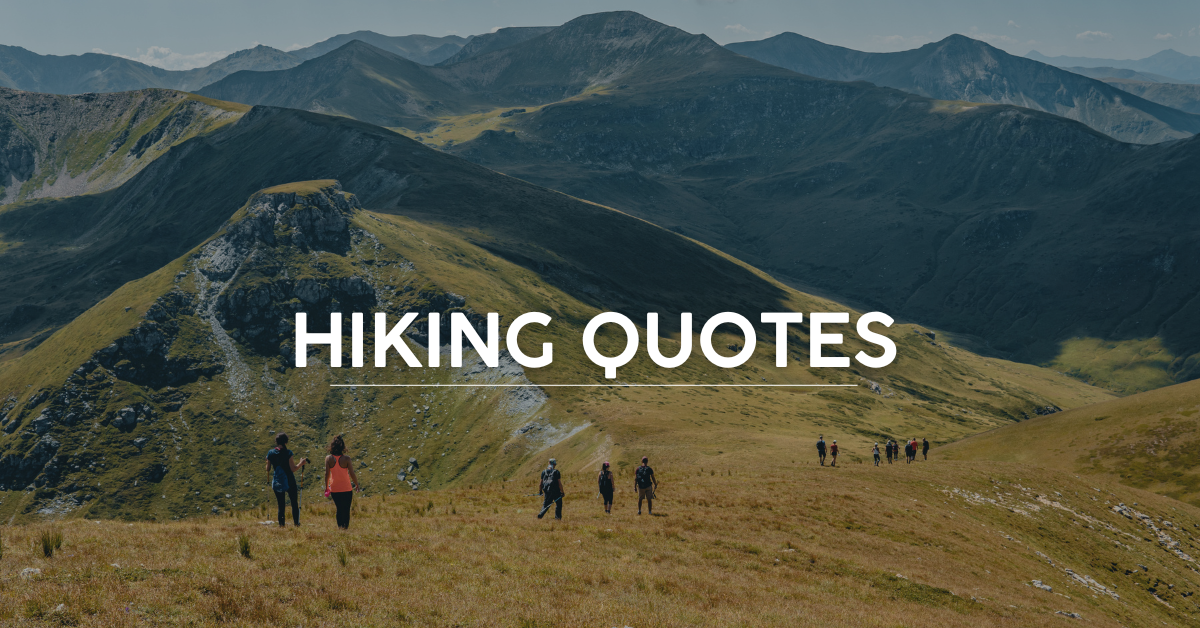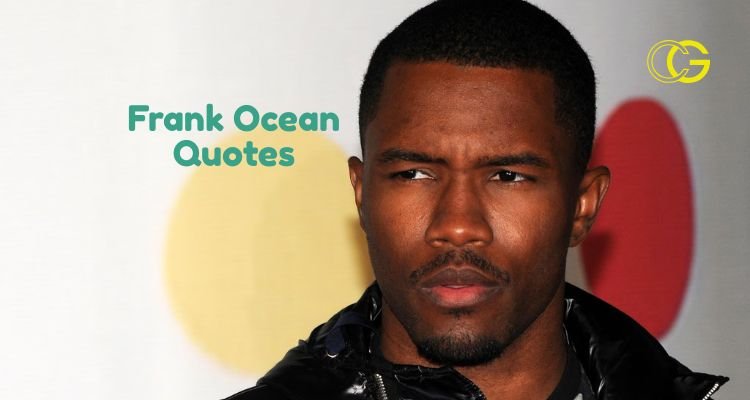Hiking quotes capture the raw essence of our deepest connection with wilderness. They transform fleeting moments of mountain majesty into lasting wisdom that fuels our next adventure. While other collections simply list quotes, this comprehensive guide reveals the psychology behind why certain words ignite our wanderlust and sustain us through challenging climbs.
The power of hiking quotes lies in their ability to translate universal human experiences through the specific lens of trail adventures. When we read “The mountains are calling and I must go,” our mirror neurons activate the same pathways as if we were actually preparing for a hike. This neurological response explains why the right quote can transform a sedentary afternoon into urgent trip planning.
What separates memorable hiking quotes from forgettable platitudes is authenticity born from genuine trail experiences. The most impactful quotes emerge from moments of struggle, wonder, or revelation on actual mountains, not from comfortable writing desks.
Hiking Quotes
Motivational Quotes
Motivational hiking quotes serve as mental fuel during the toughest trail moments. They acknowledge struggle while promising transformation, making them perfect companions for steep ascents and challenging weather.
Classic Motivational Hiking Quotes:
“Getting to the top is optional. Getting down is mandatory.”
— Ed Viesturs
This quote perfectly captures the paradox of mountaineering: the summit isn’t the real challenge—maintaining judgment and safety is. Viesturs, who climbed all fourteen 8,000-meter peaks without supplemental oxygen, understood that ego can kill on mountains.
“It’s not the mountain we conquer, but ourselves.”
— Sir Edmund Hillary
Hillary’s wisdom redirects focus from external achievements to internal growth. This perspective transforms every hike into a personal development opportunity rather than just physical exercise.
“People do not decide to become extraordinary. They decide to accomplish extraordinary things.”
— Sir Edmund Hillary
This reframes heroism as choice rather than inherent ability, making extraordinary adventures seem achievable for ordinary hikers with sufficient determination.
Modern Motivational Perspectives:
“Because in the end, you won’t remember the time you spent working in an office or mowing the lawn. Climb that goddamn mountain.”
— Jack Kerouac
Kerouac’s raw urgency contrasts mundane obligations with transformative experiences, pushing readers toward immediate action rather than delayed gratification.
“Only those who risk going too far can possibly find out how far they can go.”
— T.S. Eliot
This quote speaks to the calculated risks necessary for meaningful adventures, encouraging hikers to push beyond comfort zones while maintaining safety awareness.
Nature-Inspired Quotes
Nature-inspired quotes celebrate the profound connection between human consciousness and wild places. They remind us that hiking transcends exercise to become communion with forces larger than ourselves.
Connecting with Natural Rhythms:
“In every walk with nature, one receives far more than he seeks.”
— John Muir
Muir’s observation recognizes nature’s generous spirit—trails always provide more than expected, whether through unexpected wildlife encounters, weather dramas, or inner revelations.
“To walk in nature is to witness a thousand miracles.”
— Mary Davis
This quote transforms ordinary trail observations into extraordinary experiences, encouraging mindful awareness of natural details often overlooked in daily rushing.
“A walk in nature, walks the soul back home.”
— Mary Davis
Davis captures nature’s restorative power—not as escape from reality but as return to our authentic selves, stripped of artificial urban pressures.
Wilderness as Teacher:
“The clearest way into the universe is through a forest wilderness.”
— John Muir
Muir suggests that understanding life’s deeper meanings requires direct wilderness experience, not theoretical study or urban contemplation.
“Each fresh peak ascended teaches something.”
— Sir Martin Conway
Conway’s insight acknowledges that every summit provides unique lessons, making each hike a form of experiential education impossible to replicate indoors.
“Mountains teach that not everything in this world can be rationally explained.”
— Aleksander Lwow
This quote honors mystery and wonder, reminding hikers that some trail experiences transcend logical analysis and demand acceptance of the unexplainable.
Seasonal and Sensory Nature Quotes:
“Nothing is more beautiful than the loveliness of the woods before sunrise.”
— George Washington Carver
Carver celebrates the magic of dawn hiking, when trails reveal their most intimate moods before daily chaos begins.
“And into the forest I go, to lose my mind and find my soul.”
— John Muir
This paradoxical statement captures the therapeutic effect of wilderness—losing analytical thinking to discover deeper truths about ourselves.
Personal Growth Quotes
Personal growth hiking quotes explore how trail experiences catalyze internal transformation. They recognize that hiking challenges us holistically, creating opportunities for character development impossible in controlled environments.
Quotes About Overcoming Challenges:
“You were made to soar, to crash to earth, then to rise and soar again.”
— Alfred Wainwright
Wainwright’s cycling metaphor acknowledges that growth requires both success and failure, with hiking providing safe spaces to practice resilience.
“Mountains have a way of dealing with overconfidence.”
— Hermann Buhl
Buhl’s warning reminds hikers that nature humbles even experienced adventurers, teaching respect and preparation over bravado.
“The hardest mountain to climb is the one within.”
— J. Lynn
This quote shifts focus from external challenges to internal obstacles, suggesting that mental barriers often exceed physical ones.
Quotes About Self-Discovery:
“I found far more answers in the woods than I ever did in the city.”
— Mary Davis
Davis contrasts urban confusion with natural clarity, positioning wilderness as a place of answers rather than escape.
“Me thinks that the moment my legs begin to move, my thoughts begin to flow.”
— Henry David Thoreau
Thoreau identifies the connection between physical movement and mental clarity, explaining why walking meditation has ancient roots across cultures.
“Returning home is the most difficult part of long-distance hiking. You have grown outside the puzzle and your piece no longer fits.”
— Cindy Ross
Ross captures the challenge of reintegrating after transformative trail experiences, acknowledging that profound adventures change us permanently.
Quotes About Life Perspective:
“I slow down when hiking. The rhythm of nature is more leisurely. The sun comes up, it moves across the sky, and you begin to synchronize to that rhythm.”
— John Mackey
Mackey describes hiking’s meditative quality—synchronizing human pace with natural rhythms rather than artificial urgency.
“We don’t stop hiking because we grow old. We grow old because we stop hiking.”
— Finis Mitchell
Mitchell challenges age-related limitations, suggesting that physical activity maintains youth better than passive aging acceptance.
Unique Perspectives on Hiking Quotes
The Psychology Behind Hiking Quote Effectiveness
Recent neuroscience reveals why certain hiking quotes create powerful emotional responses while others feel empty. When we encounter authentic trail wisdom, our brains activate embodied cognition—the same neural pathways involved in actual hiking experiences fire just from reading about them.
The most effective hiking quotes contain what psychologists call “experiential specificity”—details that trigger sensory memories in readers’ minds. Compare generic motivation like “never give up” with trail-specific wisdom: “Getting to the top is optional. Getting down is mandatory.” The second quote works because it acknowledges real mountaineering dangers while providing practical wisdom.
Emotional Anchoring Through Quotes:
Hiking quotes serve as emotional anchors during challenging trail moments. When facing exhaustion, unpredictable weather, or fear, remembered quotes provide mental support that doesn’t add pack weight. The most effective trail mantras balance realism with hope: “This too shall pass, but the view from the top will last forever.”
Cultural Evolution of Hiking Wisdom
Indigenous vs. Western Perspectives:
Traditional cultures that developed in mountain environments express hiking wisdom differently than Western adventure seekers. Indigenous quotes often emphasize reciprocity: “We do not inherit the trail from our ancestors; we borrow it from our children.” This contrasts with conquest-oriented Western quotes about “conquering” peaks.
Scandinavian hiking culture, influenced by allemansrätten (right to roam), produces quotes celebrating freedom and environmental stewardship: “The forest belongs to everyone, but only those who walk it truly understand its gifts.”
Digital Age Transformation:
Social media has democratized hiking quote creation but also led to oversimplification. Instagram-friendly quotes prioritize visual appeal over meaningful content, leading to generic wisdom like “collect moments, not things” that sounds profound while remaining safely meaningless.
However, digital platforms have also preserved authentic trail wisdom from everyday hikers: “GPS will get you there, but only your feet will teach you the way” captures modern navigation tensions between technology and traditional wayfinding skills.
Quotes from Notable Adventurers and Explorers
John Muir: The Philosophical Pioneer
John Muir’s quotes transcend outdoor inspiration to become profound meditations on humanity’s relationship with wilderness. His background as both scientist and mystic created unique perspectives that balance empirical observation with spiritual wonder.
Muir’s Most Impactful Quotes:
“The mountains are calling and I must go.”
This simple declaration has become hiking culture’s most recognizable quote because it captures the mystical compulsion many feel toward wild places. The phrase “must go” suggests necessity rather than choice, acknowledging that some people are fundamentally drawn to high places.
“Thousands of tired, nerve-shaken, over-civilized people are beginning to find out that going to the mountains is going home; that wildness is a necessity.”
Written over a century ago, this quote predicts modern outdoor recreation’s therapeutic role in treating urban stress and digital overwhelm.
“I only went out for a walk and finally concluded to stay out till sundown for going out, I found, was really going in.”
Muir’s paradoxical observation captures how wilderness experiences lead to internal discovery rather than external escape.
Lesser-Known Muir Wisdom:
“Between every two pines is a doorway to a new world.”
This quote encourages hikers to see familiar forests with fresh eyes, recognizing that perspective changes create entirely new experiences on repeated trails.
“Of all the paths you take in life, make sure a few of them are dirt.”
Muir advocates for maintaining connection with unpaved places, recognizing that natural surfaces provide experiences impossible on artificial paths.
Sir Edmund Hillary: Conquering with Humility
Hillary’s quotes balance monumental achievement with remarkable humility, reflecting his understanding that mountains humble even the most accomplished climbers.
Hillary’s Leadership Philosophy:
“It is not the mountain we conquer, but ourselves.”
This quote redirects focus from external achievements to internal growth, transforming every climb into personal development opportunity.
“You don’t have to be a fantastic hero to do certain things. You can be just an ordinary chap, sufficiently motivated to reach challenging goals.”
Hillary democratizes extraordinary achievement, suggesting that epic adventures require determination rather than superhuman abilities.
Contemporary Voices: Modern Trail Wisdom
Today’s adventurers contribute fresh perspectives while honoring traditional wisdom. They address contemporary challenges like environmental degradation, inclusivity, and mental health while maintaining hiking’s timeless appeal.
Environmental Advocacy Through Quotes:
“Hiking is not escapism; it’s realism. The people who choose to spend time outdoors are not running away from anything; we are returning to where we belong.”
— Jennifer Pharr Davis
Davis reframes outdoor recreation as homecoming rather than escape, suggesting that wilderness connection represents natural human behavior rather than luxury activity.
Female Perspectives in Adventure Literature:
“You need special shoes for hiking… and a bit of a special soul as well.”
— Emme Woodhull-Bache
Woodhull-Bache acknowledges both practical and spiritual preparation required for meaningful trail experiences.
Urban Escape Themes:
“Life sucks a lot less when you add mountain air, a campfire and some peace and quiet.”
— Brooke Hampton
Hampton’s blunt honesty about modern life’s challenges resonates with hikers seeking authentic respite from urban pressures.
How Hiking Quotes Reflect Personal Journeys
The Hero’s Journey on Every Trail
Joseph Campbell’s monomyth pattern appears in hiking experiences across cultures and centuries. Every meaningful trail adventure follows this archetypal structure: departure from familiar territory, trials and challenges, transformation through experience, and return with new wisdom.
Departure Phase Quotes:
“The journey of a thousand miles begins with a single step.”
— Lao Tzu
Though not specifically about hiking, this quote captures the intimidation and possibility inherent in beginning any challenging trail adventure.
“Do not follow where the path may lead. Go instead where there is no path and leave a trail.”
— Ralph Waldo Emerson
Emerson encourages original exploration rather than simple trail following, advocating for adventure that creates rather than merely consumes experiences.
Trial Phase Quotes:
“Somewhere between the bottom of the climb and the summit is the answer to the mystery why we climb.”
— Greg Child
Child locates the hiking experience’s meaning in the process rather than the destination, acknowledging that understanding often emerges during struggle rather than achievement.
“If you can find a path with no obstacles, it probably doesn’t lead anywhere.”
— Frank A. Clark
This quote validates difficulty as indicator of meaningful destination, reframing obstacles as confirmation rather than discouragement.
Transformation Phase Quotes:
“You, who know that all the bruises and scrapes from scrambling and rambling are the best because they remind you of being alive.”
— Madison Perrins
Perrins celebrates the physical marks that prove authentic engagement with challenging terrain, suggesting that comfortable adventures lack transformative power.
Return Phase Quotes:
“After a day’s walk, everything has twice its usual value.”
— G.M. Trevelyan
Trevelyan identifies hiking’s ability to restore appreciation for simple pleasures often taken for granted in daily routine.
Creating Personal Trail Mantras
Many experienced hikers develop personal mantras from meaningful quotes, adapting general wisdom to specific challenges and goals. This customization process transforms inspiring words into practical psychological tools.
Physical Challenge Mantras:
“One foot in front of the other” becomes rhythmic support during difficult climbs. The simplicity matches the reduced mental capacity available during physical stress while providing forward momentum focus.
Mental Challenge Mantras:
“This too shall pass” helps process temporary discomfort, weather challenges, or moments of doubt. The phrase acknowledges current difficulty while providing hope for change.
Mindfulness Mantras:
“Be where your feet are” encourages present-moment awareness, particularly valuable for hikers prone to rushing toward destinations rather than experiencing the journey.
The evolution of personal mantras reflects hiking experience growth. Beginning hikers often focus on completion: “Finish what you start.” Experienced hikers emphasize presence: “Breathe with the mountain.” Advanced hikers prioritize wisdom: “Learn from every step.”
Quotes as Processing Tools for Trail Trauma
Hiking sometimes involves genuinely dangerous or traumatic experiences—severe weather, injuries, getting lost, or witnessing accidents. Certain quotes help process these difficult experiences while maintaining healthy relationships with outdoor recreation.
“Mountains are not stadiums where I satisfy my ambition to achieve, they are the cathedrals where I practice my religion.”
— Anatoli Boukreev
Boukreev’s perspective reframes dangerous pursuits as spiritual practice rather than ego gratification, encouraging respect over conquest.
“The experienced mountain climber is not intimidated by a mountain—he is inspired by it.”
— William Arthur Ward
Ward distinguishes between fearful avoidance and respectful preparation, helping traumatized hikers rebuild healthy relationships with challenging terrain.




